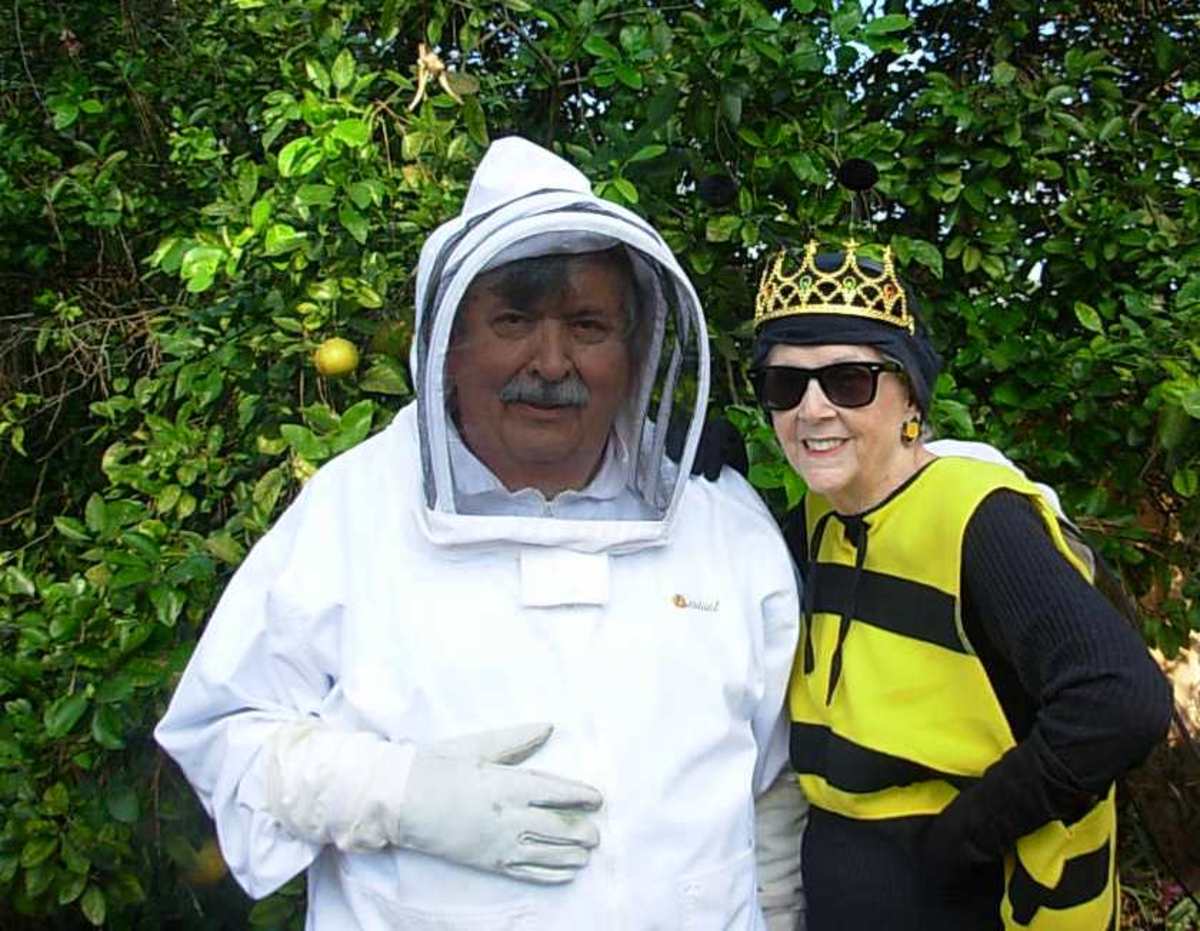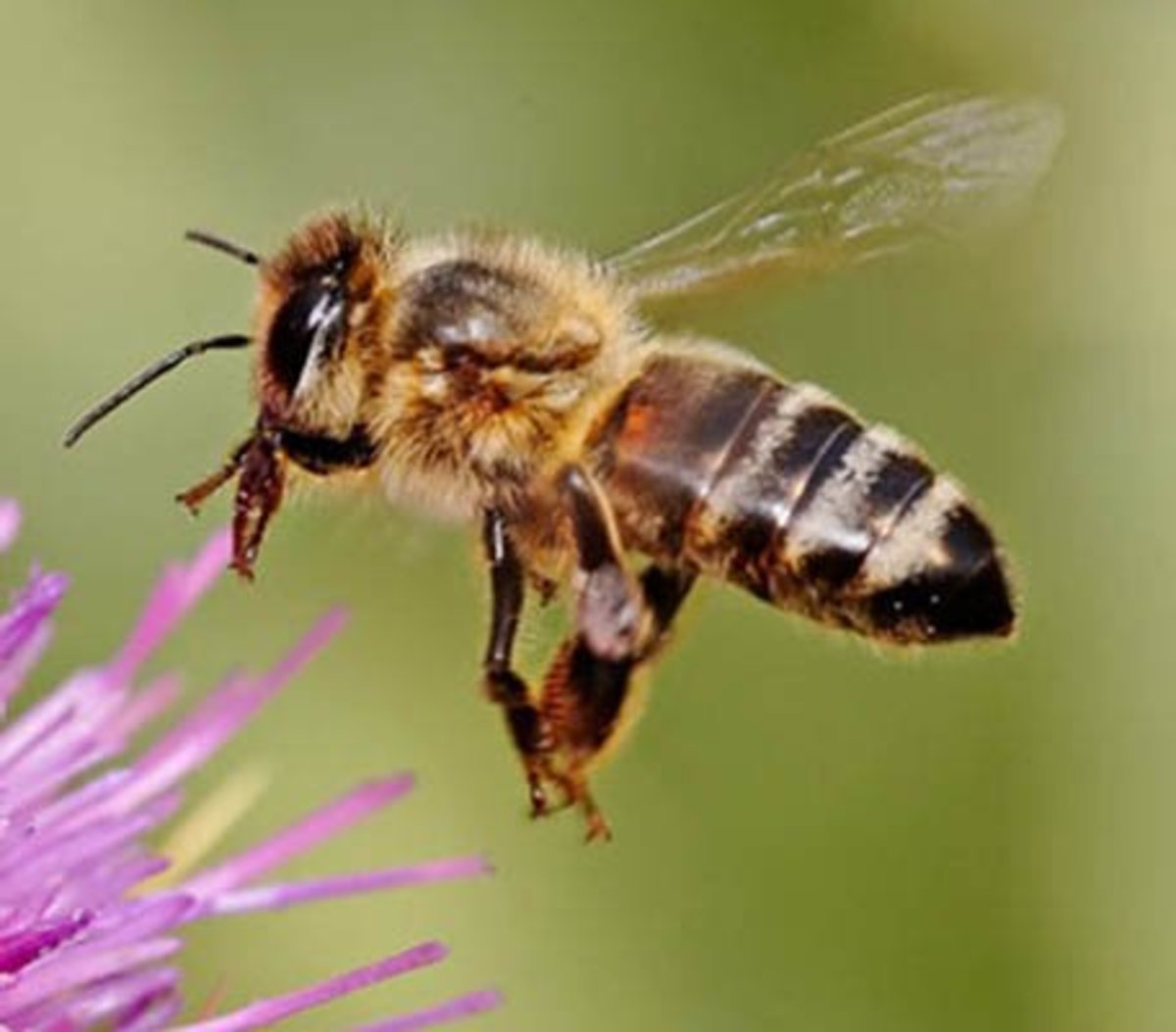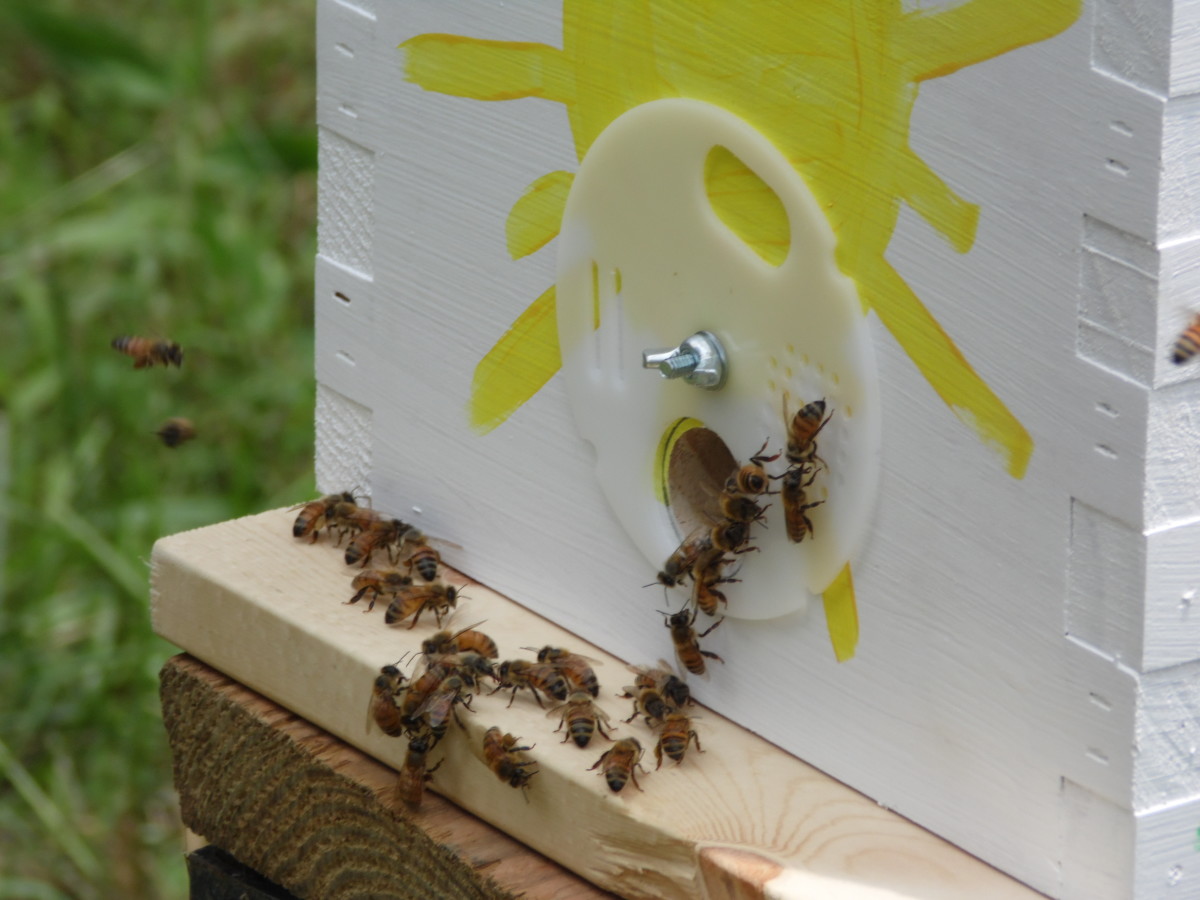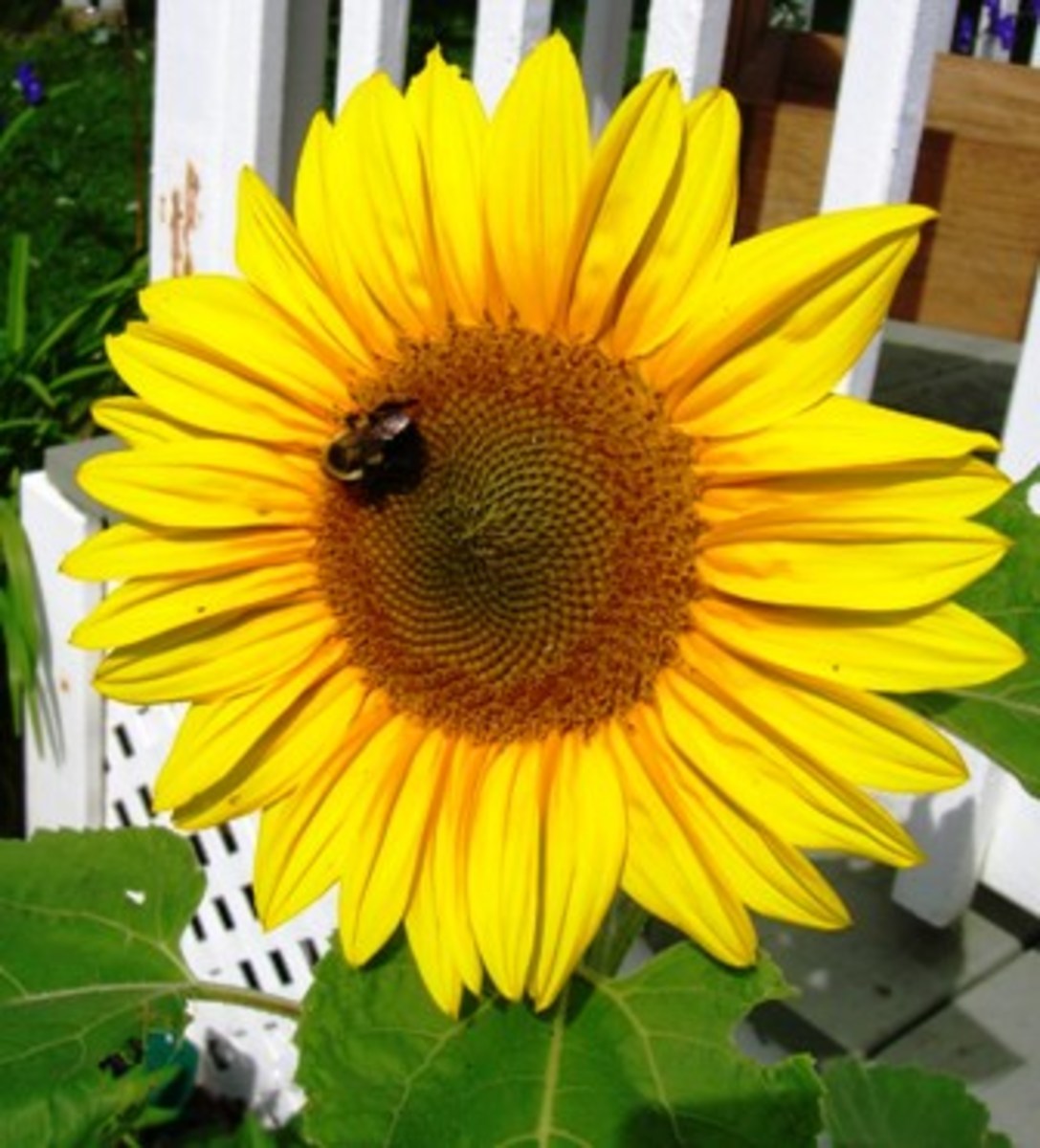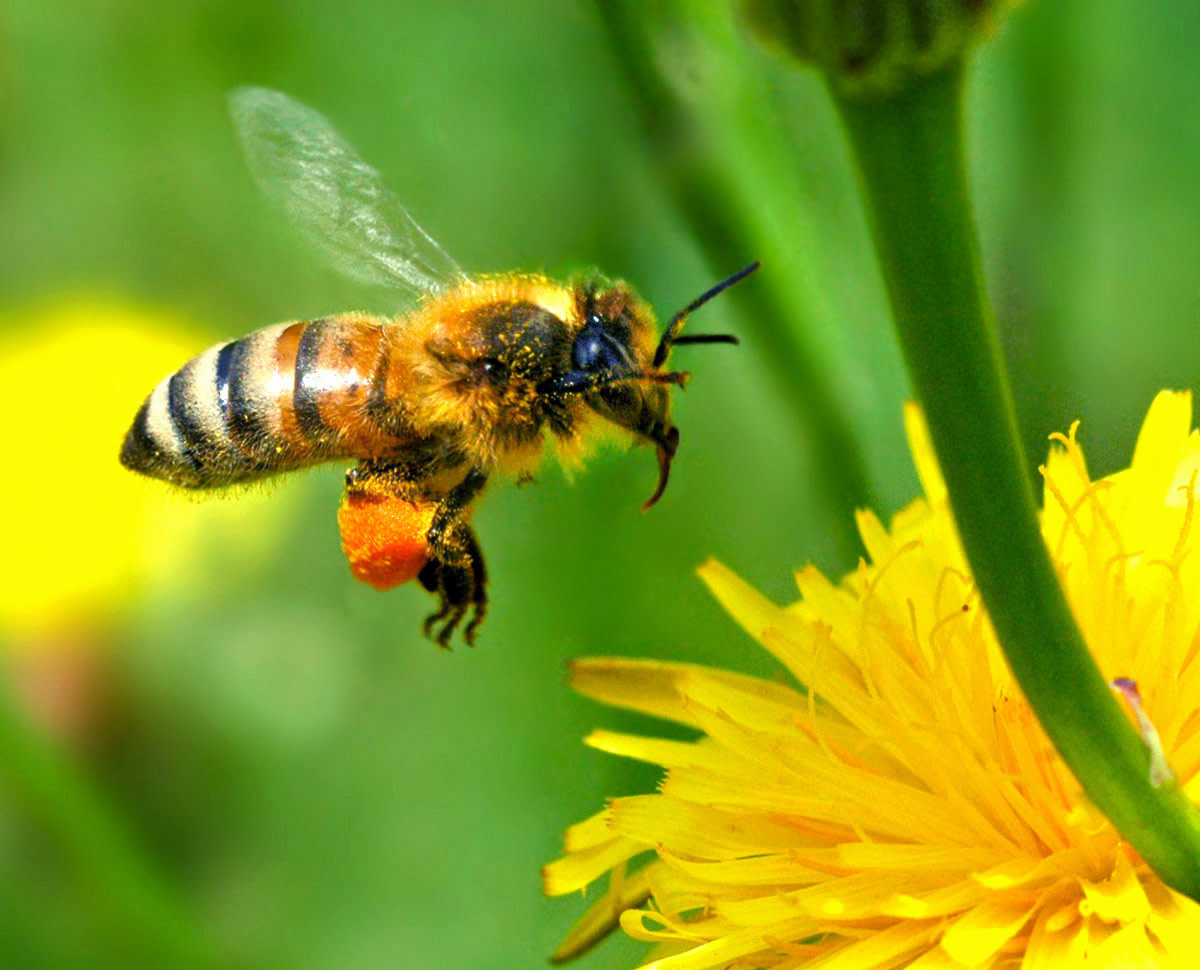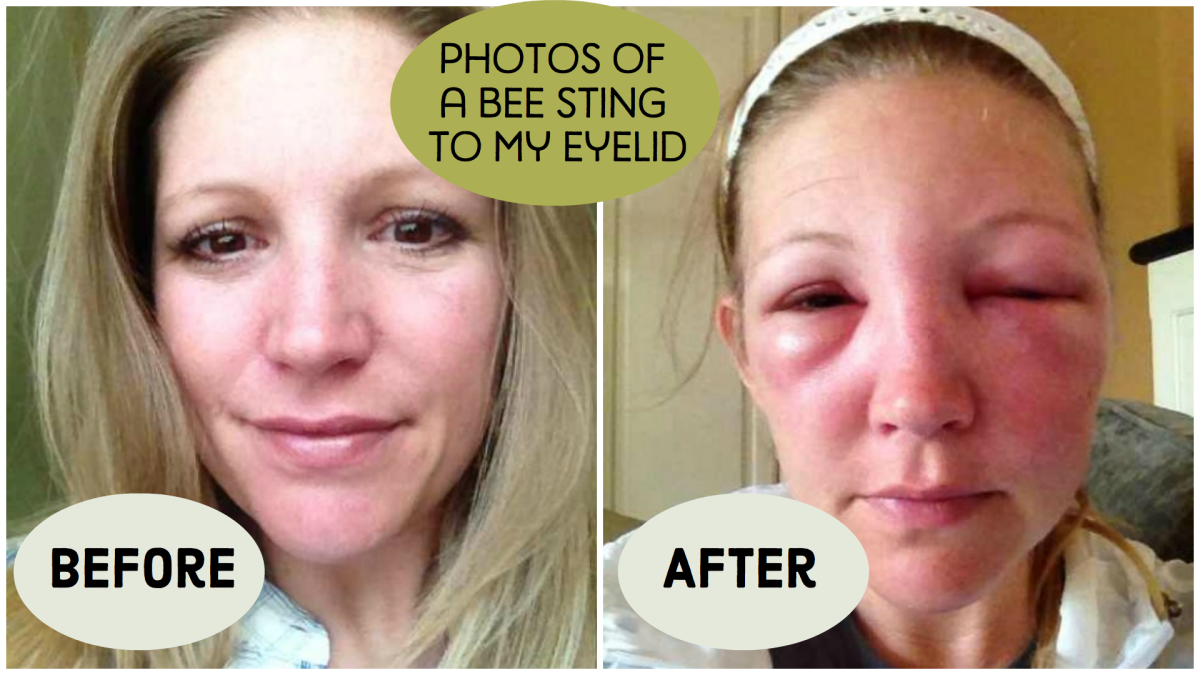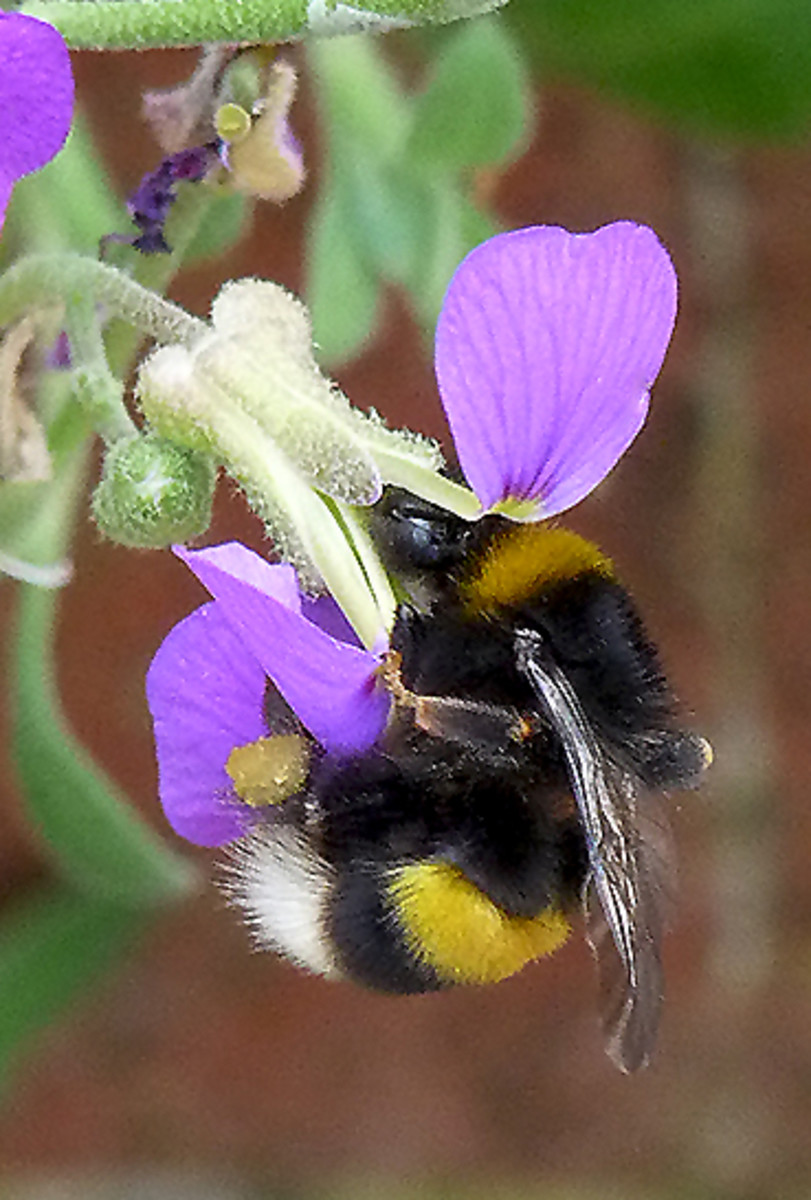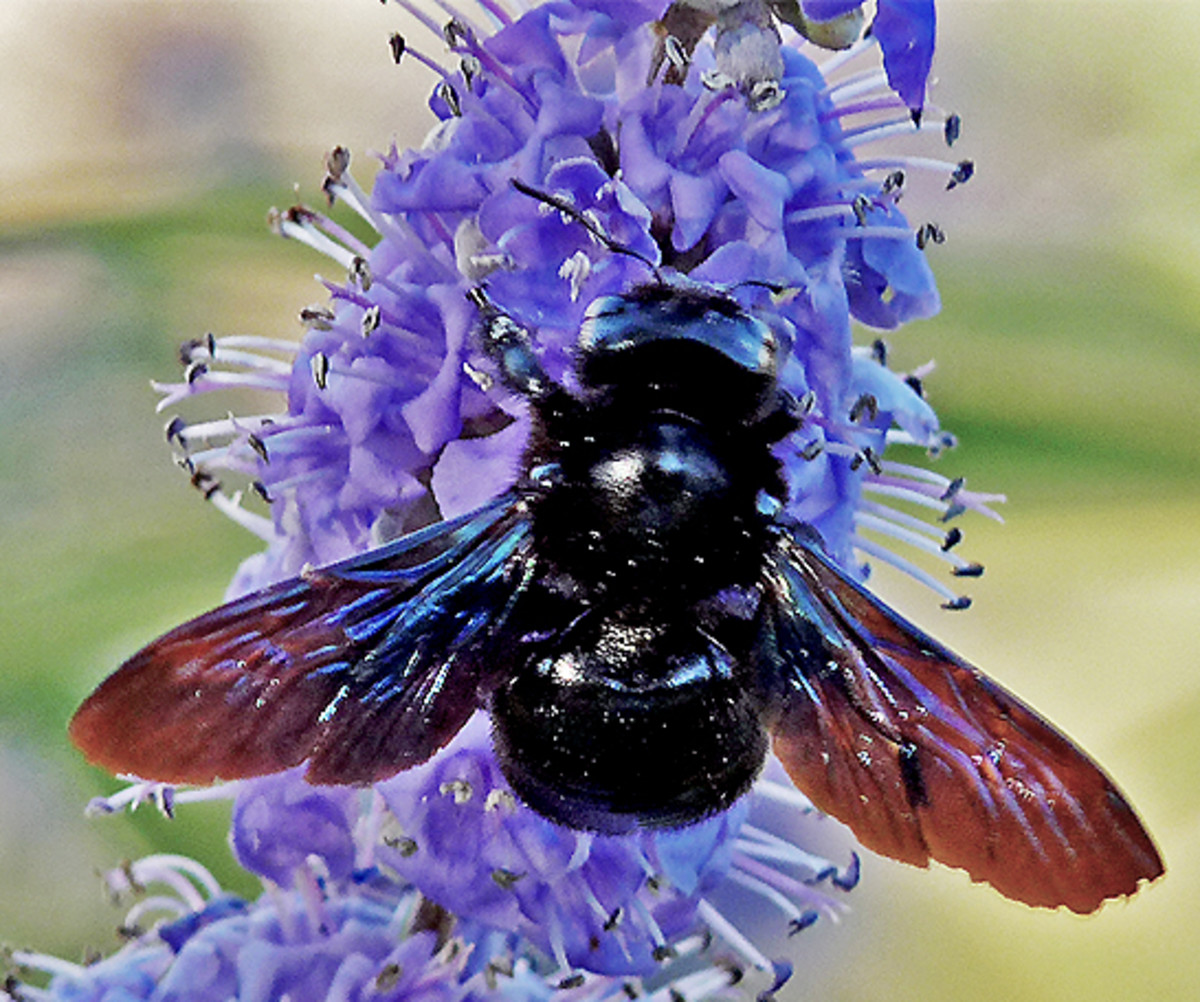Bees and The Urban Beekeeper
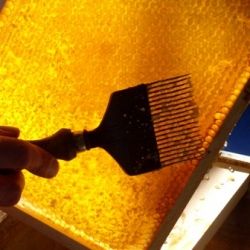
Urban Beekeeping: Raising Your Own Honey Bees in the City or Suburbs
Not just for farm folk these days, beekeeping is becoming a popular activity for urban dwellers who are growing more concerned about food safety, their family's health, and our natural environment.
In fact, as more big cities legalize beekeeping, and with growing concerns about food safety, the 100 Mile Diet, and threats to our pollinators -- small-scale beekeeping is taking off on city roof tops and in suburban backyards... in fact, you might say that urban beekeeping is all the buzz!
In addition to the environmental and nutritional benefits of keeping bees (whether you want to pollinate your vegetable garden for greater harvest, or produce your own sweet natural honey, or both), experienced beekeepers will tell you there's a "spiritual" benefit to keeping honey bees.
The comforting hum and orderly activity of a well-functioning colony of Apis Mellifera, and the remarkable sense of being part of a centuries-old tradition of insect husbandry - well, there's just no better fix for our stressed-out busy modern lifestyle!
Poll: Is Beekeeping Legal in Your City?
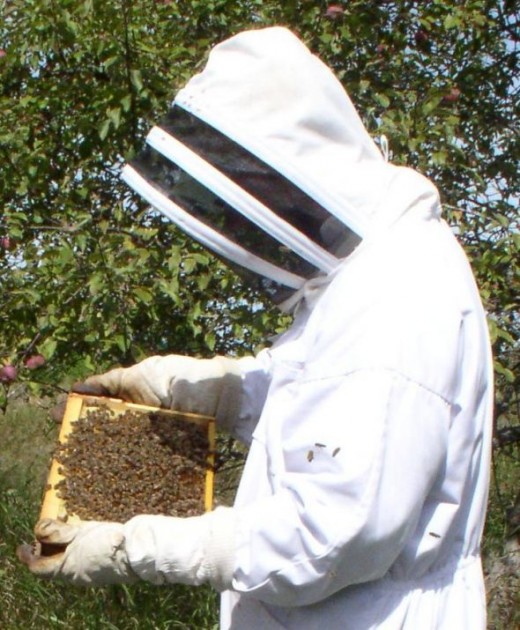
Is Beekeeping Legal in Your City?
Where the Honey Bees Are
Daily Green put together a list (with map) of cities where beekeeping is illegal. The No Buzz Zones map was last updated when New York City dropped its ban on beekeeping in favor of allowing residents to keep honey bees in the metropolis -- so there may have been a few recent changes. Daily Green relies on submissions from people living in the listed cities, so feedback and updates are strongly encouraged and may be sent to Kim Flottum (Kim@BeeCulture.com).
It is important to note, however, that most cities and towns do not actively ban backyard or rooftop beekeeping. They just haven't made any laws to do with apiculture at all. And in other cities where beekeeping is not expressly forbidden by municipal by-laws, there may still be restrictions placed on the kinds of activities that can take place within city limits, particularly in terms of distance from neighboring properties and/or "nuisance" considerations. In most locations, then, unless it is actively outlawed, you may keep honey bees -- as long as you don't run afoul of your neighbors or violate any other existing by-laws in the jurisdiction.
A little "diplomacy" -- like a gift of honey to your neighbors! - can go a long way to making sure that people and bees live together happily in an urban or suburban setting.
Is Urban Beekeeping Against the Law? - Believe it or not, some cities still have a ban on keeping bees within city limits! But other municipalities see the ben
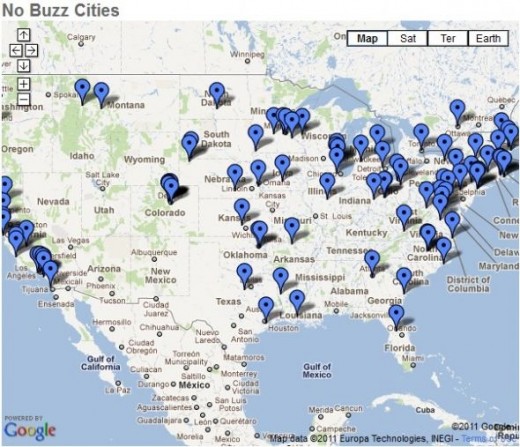
Cities Abuzz with Urban Beekeeping - Discovery News Video
Pay a visit to a Washington, D.C. rooftop, home to thousands of bees - thanks to restaurant Founding Farmers, "which owns one of the nation's largest urban beehives. And while the chefs get all the honey, researchers [from George Washington University] study the bees."
It may be that city living is actually good for honeybee health, due to the diversity of the forage plants that are available to bees in an urban area, especially with so much of the rural USA given over to monoculture and so many cities nowadays either discouraging or actively banning the use of garden pesticides.
This is a really cheery little news story, with some nice close-up shots of the bees. Enjoy!
Best How-To Books for New Beekeepers - My Personal Recommendations for New Hobby / Urban Beekeepers in North America
I've added notes to the Amazon info below, to give you a good idea of exactly WHY I'm recommending these 3 books in particular, among the many beekeeping books you'll find out there.
Do check your local library for other books (and for apiculture magazines like Bee Culture or the American Bee Journal in the US, or Hivelights if you're in Canada), too. Books are only the beginning, however -- there is no substitute for working alongside an experienced beekeeper who can show you the basics hands-on! But these three books will give you a good foundation:


Best Practices for Urban Beekeeping - "How To" Video
Here's a great video introduction to beekeeping with a solid overview of what's involved in urban beekeeping, equipment, general principles of beekeeping and the hive equipment - from New York City beekeeper Andrew Coté.
The "Bible" of Beekeeping in the United States

Beekeeping Online Courses and eBooks
I'll be straight with you, online courses may not be the best way to learn. It is difficult to find a reliable online course for learning how to keep bees, as there are a lot of them made by people who really don't know anything more about keeping bees than you could find out for yourself by searching the internet.
More to the point, however, beekeeping methods are not "one size fits all" - there are many ways to keep bees, depending on how "green" or "organic" you want your apiary to be, how many hives you want to run, whether your primary goal is to produce honey or to supply bees for commercial pollination services, and where in the world you are located.
Even a piece of advice as apparently "basic" as an equipment list will depend on your location. For example, in the UK the National beehive is more common than the Langstroth hive that is most widely used in North America, while the Top Bar and Warre style hives have their own keen followers in different areas around the world.
All of which is to say that I don't personally feel comfortable to recommend a particular online beekeeping course, but it may be worthwhile to check for an offer of a free "mini course" by email. You'll get a sales pitch, of course, but a free sample will give you some idea of how useful and clear the paid course is likely to be.
The Best Way to Learn to Keep Honey Bees
Without any question, the best way to learn about beekeeping is to find a local beekeepers' association and follow along with an experienced beekeeper, out in the field, hands on.
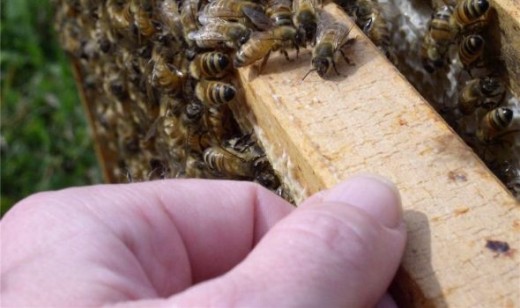
National Beekeepers' Associations - Worldwide Beekeeping
Beekeeping is one of the few agricultural industries or pursuits that has a keen following in almost every country of the world. Here is a list of some of the national organizations of beekeepers (and/or federations of local beekeepers' associations) operating in countries where English is an official language and/or one of the predominant languages of business.
- American Beekeeping Federation
The American Beekeeping Federation (ABF) is a national organization with about 1,000 members. it works in the interest of all beekeepers, large or small, and those associated with the industry to ensure the future of the honey bee. - The American Honey Producers Association
The American Honey Producers Association (AHPA) is an organization dedicated to promoting the common interest of honey producers in the United States. - Australian Honey Bee Industry Council
The Australian Honey Bee Industry Council (AHBIC) is made up of 6 State Associations and 3 National Associations, each representing various sections of the beekeeping industry in Australia. - Bee Farmers Association of the United Kingdom
The Bee Farmers Association of the United Kingdom is only association to represent the interests of the commercial and semi-commercial bee keepers of the U.K. - British Beekeepers Association
The British Beekeepers Association (BBKA) works to promote bees and beekeeping and to provide a range of services to its members. - Canadian Honey Council
The Canadian Honey Council (CHC) is the national association of beekeepers representing 7,000 apiculturists across Canada. - Federation of Irish Beekeepers Associations
The Federation of Irish Beekeepers Associations aims to unite local beekeeping associations for their mutual benefit and the support and improvement of Ireland's apiculture industry. - National Beekeepers Association of New Zealand
The National Beekeepers Association (NBA) is the largest representative body of beekeepers in New Zealand with over 600 members. - Scottish Beekeepers Association
The Scottish Beekeepers Association (SBA) is the national body that represents Scotland's beekeepers within the UK, in Europe and globally. - South African Bee Industry Organisation
The South African Bee Industry Organisation (SABIO) represents all aspects of the honeybee industry in South Africa and maintains the list of all registered beekeepers in South Africa involved with honey production or fruit pollination. - Welsh Beekeepers Association
The Welsh Beekeepers Association (WBKA) represents the beekeepers of Wales with the affiliation of nineteen local independent beekeeping associations.
Beekeeper at Work
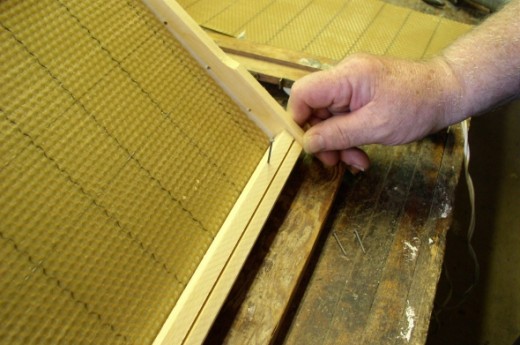
Love to hear from all you backyard beekeepers -- big-city dwellers and suburban beekeepers alike, as well as those who are just starting to think about getting into honey bees! What's your biggest challenge with keeping bees in an urban area? Got any tips to share? Comments?

